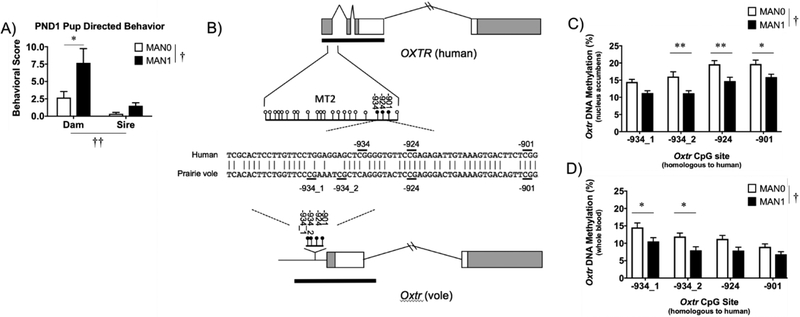Figure 2. Early handling increases parental behavior directed toward offspring and alters DNA methylation in the brain and blood at conserved CpG sites in the promoter region of Oxtr in the prairie vole.
(A) Direct handling manipulation (MAN1) increases parental care of offspring on PND 1, specifically increasing maternal pup-directed behavior (2-way parent x handling condition ANOVA; MAN0, n=7; MAN1, n=6; † main effect of handling; †† main effect of parent; *p<0.05; error bars indicate standard error). (B) DNA methylation at CpG sites −934, −924, and −901 in OXTR MT2 region of the human OXTR are conserved in prairie vole Oxtr. Exons are displayed as boxes (coding, white; untranslated, grey) and introns are solid lines. CpG islands are indicated with black bars. Specific CpG dinucleotides analyzed here are indicated with sticks and circles, with closed circles indicating sites that exhibit significant association with expression. Partial alignment of conserved human and prairie vole gene sequence is indicated, conserved nucleotides are represented with a vertical line (|) and CpG sites are highlighted with a horizontal line (−). (C) Offspring receiving less maternal attention (MAN0) have higher levels of Oxtr DNA methylation in the nucleus accumbens and (D) in whole blood at the CpG sites conserved from the human OXTR (2-way CpG site x handling condition ANOVA; 13 male/female sibling pairs; MAN0: n=7 females, 7 males; MAN1: n=6 females, 6 males; † main effect of handling; Bonferroni correction, *p<0.05, **p<0.01; error bars indicate standard error).

